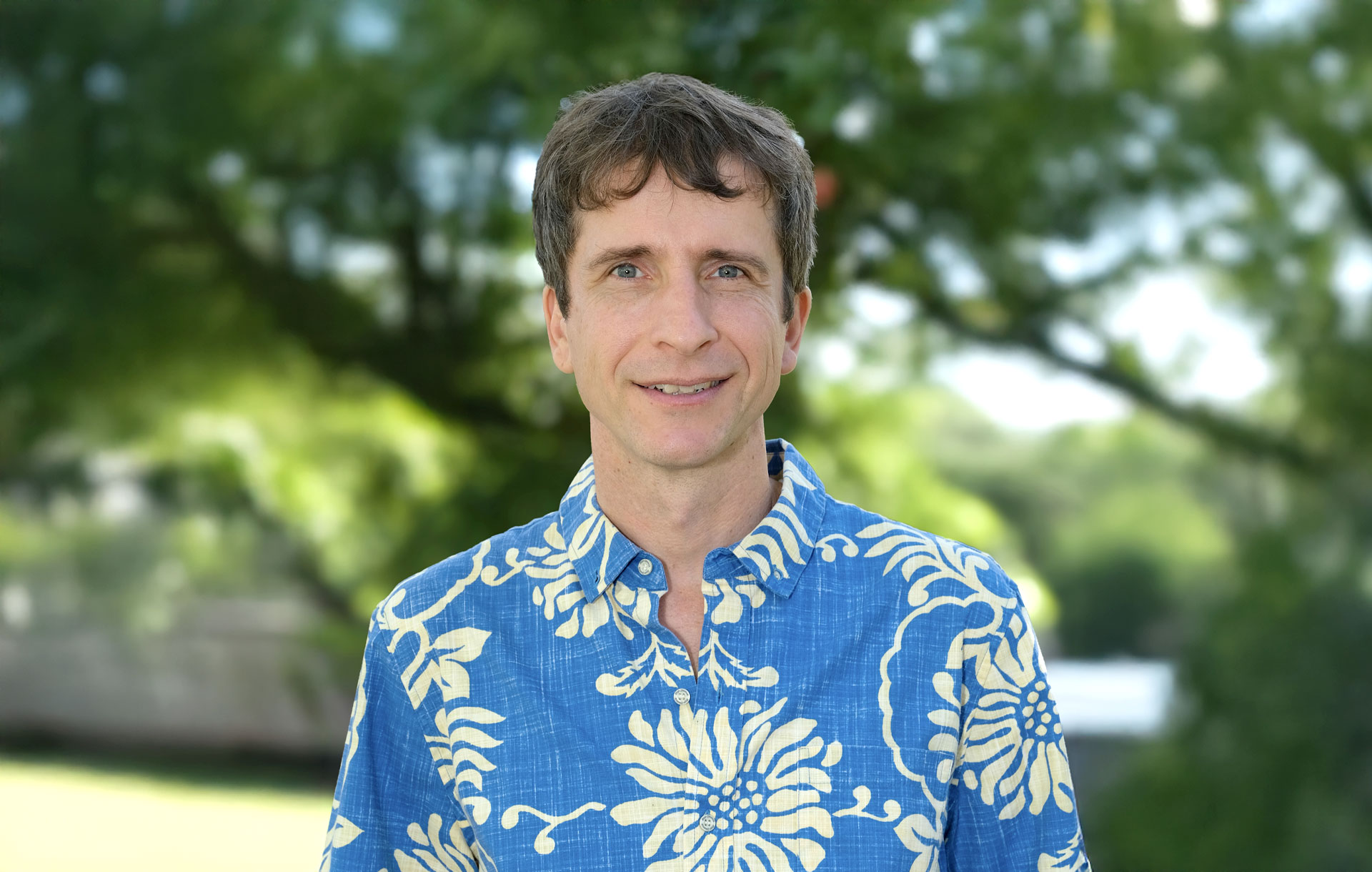Bridging Cultures and Building Futures
Embodying Mid-Pacific’s commitment to nurturing world-ready learners who are equipped for the challenges of the future is the English Language Development (ELD) program, led by Christopher Ferry. Serving 24 out of the school’s currently enrolled 107 international students, the ELD program offers a personalized, immersive approach to language learning, allowing students to quickly gain English proficiency while becoming active members of the broader Owl ‘Ohana.
The ELD program at Mid-Pacific is structured into three levels, each designed to accelerate language acquisition and integrate students in grades seven through 11 into mainstream classes as quickly as possible. “Our goal is to help students achieve academic English proficiency within three years or less,” says Ferry. Unlike larger programs in other schools where students may struggle to keep up in mainstream courses before they are ready, Mid-Pacific’s ELD classes are small, typically eight to 10 students, which allows for focused, individualized instruction. This uniquely personalized and immersive environment helps students improve their language, problem-solving, and critical thinking skills, and build confidence and comfort in their new academic and cultural surroundings. Through project-based learning, cultural exchanges, and immersive experiences, students engage in meaningful, real-world applications of language.
“We’re not just teaching English, we’re teaching communication, collaboration, and cultural adaptability, which are core to the Mid-Pacific vision, mission, and learner profile.”
Fostering a Place of Belonging
One of the unique strengths of the ELD program is its focus on building connections between international and local students. The Teaching Assistant (TA) program encourages local students and mainstream international students to work alongside ELD students, offering support in the classroom and promoting friendships across cultural lines. Additionally, clubs like “Globetrotters” organize fun events and cultural exchange activities that further strengthen these relationships. This collaborative environment and integration helps ELD students build strong academic and social connections, making their transition smoother and more supportive. Moreover, Mid-Pacific’s focus on community-building activities and emphasis on collaboration and communication skills prepare students to succeed academically and thrive in a globalized world, which are valuable in today’s business environment.
“International students bring resilience, adaptability, and diverse perspectives that benefit and inspire our whole community,” Ferry explains. “By working together, both our international and local students develop valuable skills that they will carry with them into the future.”
Participation in extracurricular activities is highly encouraged at Mid-Pacific, and international students have access to the same wide-range of opportunities as their local peers. From theatre and dance to sports teams and academic clubs, these activities offer crucial avenues for international students to practice their English in real-world settings, build friendships, and fully integrate into the school community.
Ferry emphasizes the importance of these experiences, “Engaging in activities outside the classroom helps international students feel more connected and confident. Whether they’re participating in sports or joining clubs, these experiences enhance their language learning and make their time at Mid-Pacific more fulfilling.”
One of the defining features of Mid-Pacific is its diverse and welcoming culture. With a focus on building personal relationships and providing a supportive environment, the school helps international students feel safe and comfortable as they navigate a new country, language, and culture giving students the confidence to thrive academically and socially.
“At Mid-Pacific, we make sure that every student feels at home,” says Ferry. “Our school culture is one where students are encouraged to embrace their own cultural identities while learning to adapt and thrive in new settings.”
A Vision for the Future
Looking ahead, Ferry has ambitious goals for the ELD program. He is actively incorporating AI-driven learning tools to further personalize language instruction and enhance the student experience. “By personalizing some aspects of language learning, such as building a chatbot that adapts to a specific student’s grammar needs, we can spend more of our valuable class time working on projects that help students develop skills that align with our learner profile and transfer more readily to the world outside school,” Ferry says. He credits his colleague Bella Congdon for her work over the years innovating in this regard. “Her projects encourage students to follow their passions while also working toward an authentic product that can be shared with the community. Right now, for example, her students are working on writing an illustrated book that reflects their home cultures and personal values. They will read these books to elementary students later in the semester,” explains Ferry.
Throughout this process, continuing action research is a priority for Ferry. He has been working with Dr. Jon Pennington, Mid-Pacific Educational Technologist, and professors from the University of Hawai`i to explore the effects of using ChatGPT on student presentation skills and language complexity. They are currently preparing a paper for publication that will hopefully guide educators as they navigate this new technology. “There is a lot of hype and a lot of fear when it comes to LLMs (large language models), and the only way forward is to do research to find out what are the best practices. It’s essential we involve students in this process so they can understand how research is conducted and then integrated into professional practice,” says Ferry. “We can continue to grow and innovate, ensuring that our international students receive the best possible education and opportunities.”

